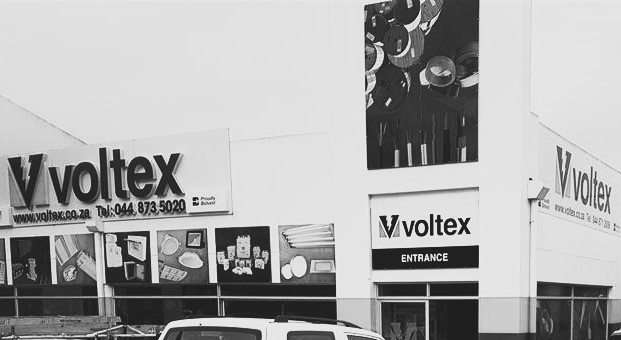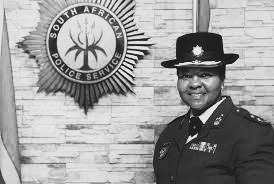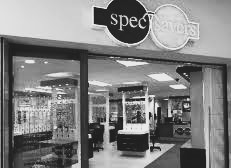modern & Accurate Polygraph Testing
in Port Elizabeth
WE DETECT LIES & VERIFY THE TRUTH FOR BUSINESSES IN PORT ELIZABETH & THE SURROUNDING AREAS
We Have An Impressive Polygraph Record
THANKS TO OUR AMAZING PORT ELIZABETH & EASTERN CAPE POLYGRAPH CLIENTS, WE ARE PROUD OF OUR ACHIEVEMENTS
We Are Highly Qualified Polygraph Specialists
BASED IN PORT ELIZABETH, WE HAVE IMPRESSIVE CREDENTIALS
Polygraph Training
Our Examiners have Basic AND Advanced certifications, with 'Specialist' endorsement (trained and qualified in the U.S.A. at an internationally recognised and APA-accredited institute).
University Degrees
Our Examiners hold BOTH undergraduate and postgraduate degrees from major South African universities. Our Examiners are well educated and have high mental acuity.
Commissioner of Oaths
Our Examiners are Commissioners of Oath (sworn statements, affidavits, and certification of copies). We provide such services free of charge, by appointment.
CCMA Expert Status
Our Examiners have been accepted at the CCMA as Polygraph Experts and have testified in accordance with rule 37A of the CCMA rules, receiving favourable comments in written arbitration awards.
Police Relationship
We have done paid work for the SA Police Service to polygraph specialist police officers and their commanders. We have a close working relationship with the SA Police Service.
Additional Qualifications
Our Examiners hold additional qualifications in diverse but relevant fields, such as: applied psychology, criminology, security management, health & safety, etc.
We do high quality polygraphs in Port Elizabeth & Surrounding Areas
WE USE MODERN, MEDICAL-GRADE COMPUTER INSTRUMENTS, WITH UNBIASED SCORING SOFTWARE, TO ENSURE ACCURATE POLYGRAPHS
Investigation Polygraph
This type of polygraph test is event specific, incident specific, and/or crime specific. It is used to rapidly guide an investigation by indicating whether someone is a prime suspect, or not.
TYPICAL DURATION: 60-minutes +
TYPICAL COST: R995.00 + VAT.
COMPREHENSIVE TYPED REPORT INCLUDED. DISCOUNTS POSSIBLE. ON-SITE TESTING POSSIBLE. T's & C's APPLY.
Verification Polygraph
This type of polygraph test is used to verify the truthfulness of verbal and/or written statements, and/or oral evidence. The test will indicate if the information is credible, reliable, and/or truthful.
TYPICAL DURATION: 60-minutes.
TYPICAL COST: R945.00 + VAT.
COMPREHENSIVE TYPED REPORT INCLUDED. DISCOUNTS POSSIBLE. ON-SITE TESTING POSSIBLE. T's & C's APPLY.
Periodic Polygraph
This type of polygraph test is used to either randomly or periodically check whether key employees are complying with critical policies and procedures in high risk or high security environments.
TYPICAL DURATION: 50-minutes.
TYPICAL COST: R895.00 + VAT.
COMPREHENSIVE TYPED REPORT INCLUDED. DISCOUNTS POSSIBLE. ON-SITE TESTING POSSIBLE. T's & C's APPLY.
Pre-Employment Polygraph
This type of polygraph test is used to carefully screen job-applicants. The test focusses on UNDETECTED serious crime, substance abuse, serious workplace dishonesty, past serious misconduct, etc.
TYPICAL DURATION: 45-minutes +
TYPICAL COST: R845.00 + VAT.
COMPREHENSIVE TYPED REPORT INCLUDED. DISCOUNTS POSSIBLE. ON-SITE TESTING POSSIBLE. T's & C's APPLY.
Affordable Pricing for High-Quality, Reliable polygraph Tests
OUR PRICING REFLECTS OUR CONSIDERABLE EXPERTISE AND EXPERIENCE IN PROVIDING TRUSTWORTHY & ACCURATE RESULTS
Pricing Factors
All of the following benefits are
included in our pricing:
Only modern computer equipment and impartial scoring software used?
Examiners with APA-accredited basic AND advanced qualifications?
Polygraph/s done in full legal compliance with all applicable laws and human rights?
Very experienced service provider with a proven record
(25-years+ polygraph experience)?
Intelligent, high mental acuity, university graduate Examiners?
Close working relationship and networks with the Police, legal profession, etc.?
Extensive, reputable Client references available (500+ Clients)?
Professional business with proper offices, systems, policies & procedures in place?
Hearing, CCMA and Aribtration Expert Witness status?
High quality polygraph/s (testing repeated three times, to ensure accuracy)?
After the polygraph/s, same-day feedback to Client?
Comprehensive, professional multi-page typed report/s, at no additional charge?
Fully compliant with CCMA rule 37A (we can draw up the notice for you)?
If needed, able to provide free labour law advice and guidance (trained in labour law)?
If needed, able to provide security management advice (trained in security risk management)?
From R845
TERMS & CONDITIONS APPLY
We provide substantial discounts for large volume cases - Please request a Quote by using the Contact Form
client Testimonial
Another Happy POLYGRAPH Client!
We value what our Clients think and say about us. Here's the text of an e-mail received from a long-term Client following a very successful polygraph assignment during which several undetected crimes were also uncovered during a specific, single-event investigation.

We Are Proud of Our Values
values at the core of OUR DAILY POLYGRAPH WORK...
Accountability
We support Law and Order. We believe that people must be held accountable for their actions. We fully respect the Law as well as each individual we work with. The polygraphs we do helps to keep dishonest and crooked employees accountable.
Integrity
We look for and report the truth. We believe that lies eventually come to light, but the sooner the better. We are transparent and honest in our business practices. We undertake each polygraph assignment with absolute integrity, respecting the rights of all concerned.
Quality
Every aspect of our business is quality-driven: our offices, Examiners, staff, policies and procedures; and our polygraphs. Our work will not embarrass you or cause you legal problems later on, because our polygraphs are of a superior quality.
Impartiality
We believe in neutrality, as is required by law of an Expert Witness. We report our polygraph findings without fear, favour or prejudice. No matter who pays our bills, we do not take sides and do not behave like an attorney, detective, or judge. We are truly impartial.
Why Choose Us?
CHOOSE A POLYGRAPH PROVIDER BASED ON QUALITY & COMPETENCE

Polygraph Provider to 500+ Businesses Clients
So many businesses cannot be wrong. They chose us for a reason: SUPERIOR QUALITY POLYGRAPHS, at an affordable price, to fight against crime. Our 500+ Clients range from sole owners to international businesses and major brands with a local presence.

25-Year Proven Polygraph Record
Port Elizabeth and the Eastern Cape is a tough place to do business in. No business can last here more than 25 years, by luck or by chance. The fact that we have done polygraphs, for so many years, is your guarantee that we really know our work very well indeed.

High Mental Acuity Polygraphs
Our list of credentials is truly impressive. We are MORE QUALIFIED than any other local polygraph provider. We believe in life-long learning so that our Clients can benefit from our high mental acuity and broad knowledge. Learning develops wisdom. We have an excellent reputation.

Extensive Polygraph Experience
We have done BUSINESS-RELATED POLYGRAPHS for almost every imaginable case and scenario, for almost every imaginable business sector and industry. We work exclusively with businesses only, to fight crime, and to prevent crime. We work mainly in Port Elizabeth, and on occasion, elsewhere in the Eastern Cape.

The Best Polygraph Equipment & Software
We use only the best and most reputed USA-built and licenced FULLY COMPUTERISED polygraphs and computer scoring systems. We do not use old-fashioned ‘machines’ that have accuracy problems due to its mechanical components! Our scoring software ensures an unbiased result.

Affordable Quality Polygraphs, Done Right Everytime
We are proud of the fact that we provide HIGH-QUALITY POLYGRAPHS at an affordable price. We are not the cheapest, but our pricing is fair. Our Clients get superior quality polygraphs at a fair price. Our Clients can rely on our quality, professionalism and accuracy.
Benefits of Using Our Expert Polygraph Services
GET FAST AND RELIABLE POLYGRAPH RESULTS AT AN AFFORDABLE PRICE.
Truth Established
Get to the truth QUICKLY, with a high degree of scientific accuracy. No more lingering doubts, confusion and chaos. Regain control.
Fast Results
Traditional investigations take long, it is costly, and it is often unreliable. A basic polygraph takes only 60 minutes. Get a fast and accurate result and hold the right person/s accountable.
Money Saved
We provide high-quality polygraphs at a very affordable price. By uncovering the truth, losses can often be minimised through corrective measures.
Evidence Obtained
Get Expert evidence by means of the polygraph report and the testimony of an Expert Examiner. Polygraph evidence can be used as provided for in law.
Just Some of Our Valued Clients...
They have trusted us WITH THEIR POLYGRAPH NEEDS, SO CAN YOU




















We'll happily provide you with reputable Polygraph Client references upon request.
Becoming a Polygraph Client with us...
This is the step-by-step process we follow when a new Client joins us. You may join without any obligations or joining fees. A profile will be opened for you on our system.
1. You e-mail us. We regret that we cannot take calls as a first step.
Due to the high number of new enquiries, we simply cannot take phone calls as a first step. Please use the contact form below to e-mail us and we will call you back as soon as possible. When you become a Client you will have direct telephone access.
2. We'll review your e-mail and we will phone you back to talk.
We will discuss your needs and requirements. We will then be able to tell you whether we can help. If we can help, we will send you a quotation. Please note that we only work with businesses, no exceptions.
3. If you accept our quotation, we will do the work and then issue you with our report and invoice.
We will make proper practical arrangements with you to do the work. We will guide you every step of the way. We will then do the polygraph/s (either at our office, or on-site) and promptly provide you with a clear and reliable result.
4. We testify at a disciplinary hearing, arbitration, or Court, if required.
If needed, the relevant Examiner will testify as an Expert Witness in support of the report/s issued. The Examiner will then also answer any questions from any of the parties involved in the matter.
Polygraph Testing: Frequently Asked Questions
DISCLAIMER: (1) All information is provided in good faith, and it reflects the opinion/s of the author. (2) All information is provided for educational purposes only, as our particular perspective on these matters. (3) No information on this website may be copied and/or reproduced in any manner without our prior consent. We herewith assert our Copyright rights. (4) For any information relating to medicine, law, psychology, or any other professional field, an appropriate expert must be consulted, irrespective of what we say here.
The FAQ’s below will provide you with honest and helpful information. Please contact us if you have any other questions.
Factors when choosing a polygraph service provider:
Polygraph tests and the associated equipment are complex and require special training and qualifications. A polygraph test simply cannot be done by an unqualified person. The only internationally recognised polygraph examiner qualification standard is that as accredited by the American Polygraph Association. Even SA Police Service polygraph examiners MUST have APA accredited qualifications. Ensure that your Examiner is trained, qualified, and certified by an APA accredited polygraph school. Visit the APA website and click on Training. Ask the Examiner for proof of training. Please note that SAPAVSA, AVASPRO, and SA Polygraph Academy, are NOT, repeat not recognised or accredited by the APA, SAQA, or SAPS. See the training standard prescribed by SAQA (SA Qualifications Authority) and the published Government Gazette.
Our Examiners have all completed Basic as well as Advanced training, in the U.S.A., at APA accredited schools. We are fully trained and qualified.
There is currently no law, and statutory body, requiring ‘registration’. As long as the Examiner is APA trained (see Training section above) and otherwise competent and professional (see SAQA standard and Government Gazette under ‘TRAINING’ above), that’s all that is needed in terms of SA law.
There are several associations, which are voluntary organisations, that an Examiner may or may not choose to join. They have no statutory power to ‘register’ anyone. Those who join are members of the association, which by no means imply ‘registration’. It is misleading and perhaps fraudulent for any association to imply that it is a regulating, controlling, or registration body. A regulating, controlling, and registration body can only be established by an Act of Parliament, and none currently exist for the polygraph industry. An Examiner calling himself/herself ‘registered’, is misleading someone. An Examiner must merely be APA trained and qualified, as per the SAQA Government Gazette published standards.
Our Examiners are fully trained and qualified, exceeding the minimum standards by far.
A polygraph exam is an incredibly complex process. For example, if the Examiner does not ask the right questions, or do not phrase the questions correctly, the entire polygraph result would be useless. Question formulation skills develop over many years, as an Examiner gets exposed to different cases and scenarios. Please note that no amount of police, security, law, or psychology experience, has anything to do with polygraph skills. Always choose an Examiner who has done at least, in our opinion, 1000 (One Thousand) actual polygraph exams (more or less one to two years of work experience).
We have done more than 20,000 polygraphs over 25+ years and have a wealth of relevant experience to offer.
A polygraph instrument may generally defined as a medical-type recording instrument that simultaneously and permanently records multiple medical-type graphs, namely: (1) relative blood pressure graph, (2) chest breathing graph, (3) abdominal breathing graph, and (4) skin electrical activity graph. At least four sensors (‘attachments’) are physically attached to the person being tested, namely a blood pressure cuff, a chest pneumograph, an abdominal pneumograph, and two finger electrodes. Any device that does not consist of at least ALL FOUR of these attachments IS NOT a polygraph and may not be called a polygraph, as it would be misleading and perhaps fraudulent.
The only FOUR internationally recognised polygraph instrument manufacturers are Lafayette, Stoelting, Axciton, and Limestone (none of which are in South Africa). We use Lafayette equipment. Please do not use a service provider unless he/she makes use of one of the four recognised polygraph instruments. Only APA trained Examiners with approved US Government export permits may purchase such equipment.
Note that AVASPRO is a South African manufactured voice test and it is NOT a polygraph instrument similar to any of the proper polygraph instruments as manufactured by any of the four major international polygraph instrument manufacturers. ‘Voice polygraphs’ and ‘voice stress tests’ make no physical contact with the person being tested, only a microphone is used. It is therefore NOT a polygraph. As we all know, when people speak (with their voice) they often tell convincing lies, however the body itself (blood pressure, pulse, breathing, electrical activity of the skin) cannot lie. Only a proper polygraph instrument records actual medical data and multiple graphs.
The United States Department of Defense Polygraph Institute made the following conclusions in their voice stress analysis position statement:
“(1) To date, we have found no credible evidence in information furnished by the manufacturers [of voice stress analysis equipment], the scientific literature, or in our own research, that voice stress analysis is an effective investigative tool for determining deception. (2) A very few studies have found that voice stress analysis worked better than chance at detecting deception. Unfortunately, these results are not consistent, nor are the reported accuracies nearly as good as those normally reported for the polygraph. (3) The preponderance of evidence indicates the polygraph is far more accurate at detecting deception than is voice stress analysis. (4) No [U.S.] Department of Defense agency uses any form of voice stress analysis for investigative purposes.”
We only use fully computerised Lafayette polygraph instruments and not any voice stress devices or old-fashioned machines.
There are two ways to score polygraph test charts (the actual recorded graphs): (1) MANUALLY: the Examiner looks at the graphs and makes use of a manual score sheet; and (2) OBJECTIVELY: the Examiner makes use of an impartial computer scoring system to score the graphs automatically. Objective computer scoring systems are expensive; not all Examiners have them. The two widely recognised computer scoring systems are OSS (Objective Scoring System) and Polyscore. Ensure that your Examiner has at least one of these scoring systems, to ensure accuracy and eliminate Examiner bias.
We make use of BOTH computer scoring systems, to eliminate errors and Examiner bias.
Most cases involving polygraphs and alleged unfair dismissal go to the CCMA for Arbitration. Ask your Examiner to provide you with at least one CCMA Arbitration Award stating that he/she had testified as an Expert Witness, and, that no adverse finding had been made by the relevant Commissioner. Using an Examiner who has not reached this level of achievement may be legally risky.
We have attained this level and can provide you with favourable CCMA findings.
A successful and busy polygraph service provider will have a properly registered business and will be VAT registered. Ask for CIPC and VAT registration documents. If a polygraph service provider is not registered for VAT, it means that it has a relatively low income, which is unusual for any successful polygraph examiner.
We are a CIPC registered business, and, we have a SARS VAT number. You can claim VAT back from SARS once we have issued you with a Tax Invoice.
Your Examiner should be able to provide you with the details of at least three well-known businesses and brands who are clients. Phone or e-mail such references to get an independent and impartial testimonial.
We have over 500 businesses on our books; we can give you a long list of references.
Perhaps one of the most crucial factors in choosing an Examiner is his/her people skills. He/she must be able to respectfully work with all sorts of people, under stressful circumstances. Rude, aggressive, and intimidating Examiners will cause you legal trouble. An Examiner should be courteous, respectful, neutral, and professional in his/her interactions with people. Ask your Examiner about his/her approach and people skills. His/her answer will help you to decide who to use.
We have excellent people skills – ask any of our 500 Clients. We get the job done without intimidating anyone or causing you legal trouble.
An Examiner must understand the basic concepts of South African labour law and criminal law, e.g. his/her role as a neutral truth-seeker; what a polygraph can and cannot prove; how to testify as an Expert Witness, etc. There are Examiners who do not understand the law well and that will expose you to legal risks. We know and understand labour law and criminal law well. Ask your Examiner basic law questions; you’ll soon know whether he/she is suitable.
We have university training in labour law and criminal law and always work in a legally compliant manner. We respect all laws.
We have proper, effective and efficient systems, policies and procedures in place, fine-tuned over a 25 year period. Some examples are:
(1) A system for video and audio recording each polygraph session, and keeping the recordings safe for five years.
(2) Carefully crafted, neat and professional documents, such as consent forms, and a strict and access-controlled filing system. Documents are disposed off after five years, using a professional external specialist service provider.
(3) A complete and accurate database of all polygraphs ever done, and all reports ever issued, is kept permanently and securely on-file, and backed-up to cloud storage as well.
(4) A cloud-based client billing system, with portal access available to a client, if required by the client.
(5) The ability to accept card payments.
(6) A professional AAA-grade office, air-conditioned, with permanent reception staff, a large business lounge with a TV, a self-help tea and coffee bar, clean and spacious toilets, Wifi, two elevators, security staff, and an automatic standby electricity generator for load shedding.
Most of our work is done at the office. Under certain circumstances, we can also work at your premises.
We do not work from home, from a suitcase, or out of a car. We are a professional, proper business.
A basic polygraph, if done by an experienced, properly trained, and qualified Examiner, will cost around R1000.00 + VAT [2023 pricing, expect an annual increase of around 6% therefater]. The polygraph report is included. If a service provider quotes you significantly less than this, it could be due to the following, in our opinion: (1) lack of business and clients resulting in desperate price cuts that are unsustainable; (2) inexperience; (3) poor, inadequate or very recent training; (4) not following proper procedures and standards (cutting corners); (5) charging extra for the report (the report must be free and not charged for, as per normal industry standards); (6) not using a fully computerised, high-quality polygraph system; (7) not using a high-quality, recognised computer scoring system; (8) working out of a car or home office and thereby exposing client files to inadequate protection and security measures; (9) not video and audio recording the polygraph session; (10) baiting a client over the short term and then suddenly increasing prices dramatically when the client needs urgent work to be done.
The quality of our work, equipment, and Examiners, and the affordable fees that we charge, provide our clients with very good value or money. That is why we have so many clients and so many long-term clients. Our pricing is fair and reasonable for what you get from us. We give very good discounts under certain circumstances. Please ask for a quote.
Successful and busy Examiners are normally fully booked for two to three days in advance. If an Examiner can help you on the same day, it may be a warning sign that the Examiner is not as busy as normal. Why?
Polygraph-specific information:
The term “lie-detector” is no longer used. It was associated with old fashioned mechanical lie-detection machines of the 1950’s, 60’s, 70’s and 80’s. When modern COMPUTER polygraphs were developed in the 1990’s, major professional improvements were achieved in the polygraph profession, including the move away from using the term “lie-detector” and the adoption and use of the technically correct term “polygraph” (meaning ‘many graphs’). The use of the term “lie detector” is strongly discouraged due to its association with old and antiquated mechanical ‘machines’. ‘Polygraph’, ‘polygraph test’ and ‘polygraph exam’ are now the commonly used and accepted terms for the technique and technology used to psycho-physiologically test someone for truthfulness/deception.
In an ideal world a polygraph would not be needed. But we are not in an ideal world. We live in a high-crime environment with an ineffective police force and poorly performing courts. Many acts of dishonesty can simply not be detected or resolved in any manner other than by using a polygraph.
Those who take the ‘moral high-ground’ that polygraphs infringe on human rights, are ignorant. A polygraph is not done by force. A person is polygraphed only with his/her informed consent.
The bottom line is that if dishonesty and crime stops, there would be no need for polygraphs. Until then, polygraphs make a difference, daily, in exposing crimes and helping businesses to limit losses, thereby protecting the greater economy, and the public at large.
For those who are ‘anti-polygraph’, wait until you become a victim of crime and feel the stress and frustration of not finding out who did it to you, AND, that culprit being allowed to go undetected and unpunished! When you experience such PERSONAL trauma, frustration and stress, your ‘anti-polygraph’ attitude will quickly change.
We all have human rights; that includes the right to safety and security. A polygraph is a necessary tool in the fight against crime, wheteher we like it, or not. No crime = no polygraphs.
Honest and law-abiding polygraph examiners and their clients play an important role in the fight against overwhelming and alarming crime levels that damage the economy. If our economy cannot grow well, poverty will never be overcome.
Yes. Polygraph tests are legal in South Africa and done daily for businesses and Government. No specific law exists preventing the use of polygraphs in South Africa. As long as a person gives valid permission to be polygraphed (called in law ‘consent’), it is allowed.
A polygraph may not be done by force, threat, or coercion. It also may not be done for any illegal, unlawful, arbitrary, unfair, or unreasonable purpose; or, if a person objects to it being done, or refuses to provide consent.
We only polygraph someone when each of the five following requirements have been met:
(1) after his/her rights have been explained in full;
(2) he/she states verbally and in writing that he/she is completely willing to be polygraphed;
(3) he/she freely signs the consent form;
(4) he/she is (from a medical, social and psychological perspective) suitable for testing;
(5) the proposed polygraph test issue is fair and reasonable (i.e. there is a valid and fair polygraph testable issue).
We always ensure that the entire polygraph session is audio and video recorded, from start to finish, as proof that no force or threats were used, and as an objective and impartial record. There are Examiners who do not record their sessions; that may cause legal issues later on.
Modern computer polygraphs are totally different from the old-fashioned mechanical ‘polygraph machines’ (which always had accuracy issues due to their moving mechanical components). These days, computer polygraphs and special scoring software are very accurate.
In a 2003 meta-analysis conducted by the US National Research Council, median polygraph accuracy was placed between 85% and 90% for event-specific testing. Some studies have reported polygraph accuracy of up to 98% under certain specific circumstances. The polygraph is, however, not 100% accurate. Nonetheless, statistically, it is very accurate; much more accurate than guessing whether someone is truthful or not. At university, one is awarded a ‘distinction’ when attaining only 75% (or more). The lowest accuracy reported in the mentioned 2003 study is 85%, 10% more than a ‘distinction’ level achievement at university level. Therefore, a polygraph is a very good indicator of whether someone is truthful, or not.
People lie, that’s a fact. Sometimes it’s difficult to find the truth. Polygraphs are used to ask a person behavioural questions (i.e. actions/verbs) about a specific past event or matter and their version pertaining to it. For example, a laptop went missing at a business. There was no burglary, and only staff had access. All staff members will then be polygraphed and each one will be asked: Did you steal that laptop that went missing from that office? A person who “passes” is excluded as a possible suspect. Someone who “fails” may then be considered a prime suspect.
Polygraphs are NOT used for assessing thoughts, inclinations, attitudes, opinions, anything that does not also have a behavioural component, or instead of a more suitable test (e.g. if illegal drug use is suspected, do a drug test instead of a polygraph about illegal drug use).
The vast majority of our cases involve specific crime incidents at businesses. We also do a lot of random, periodic and pre-employment tests for businesses. See our Services section for more information. We regret that we do not work with private individuals, we only work with businesses.
A polygraph can only be done when valid informed consent has been given at the start of the process. The following factors are all important (this is not a complete list):
(1) The person must be capable of giving consent (e.g. not younger than 18, not drunk, not mentally disturbed, etc.).
(2) The person must be informed of their legal rights (e.g. that the polygraph is done voluntarily; that it may be stopped at any time; that the person may consult with an attorney or anyone else at any time, etc.).
(3) The person must be informed of the scope and purpose of the intended test questions.
(4) The person must not have any objection, unwillingness, or uncertainty at all, to proceed.
(5) The person must be willing to be attached to the polygraph equipment and to be audio and video recorded.
(6) The person must be willing to answer all fair and relevant questions, truthfully.
(7) The person must be in a suitable medical and psychological condition (e.g. not in serious pain, not very sick, not very emotional, not drunk, etc.).
(8) The person must provide consent freely, in writing.
We are always very careful and thorough to ensure that we are fully compliant with the requirements of obtaining valid consent. If there is any risk factor, we stop the session.
In general, in an employment context, if an employee is in a suitable medical and psychological condition to work, he/she is, in a general sense, suitable to be polygraphed (as long as he/she is willing).
In terms of risk factors, the following persons cannot be polygraphed (as per our standards) and their intended polygraph session would have to be postponed until such time as the relevant risk factor has been fully resolved or is no longer a factor:
(1) Someone who is pregnant.
(2) A minor, i.e. under the age of 18 years, unless he/she AND a parent/guardian consents.
(3) Someone who does not know and/or understand why he/she is requested to undergo polygraph testing.
(4) Someone who has not been given sufficient time to prepare, e.g. given time to consult with someone such as a union official, attorney, etc., if needed.
(5) Someone who refuses to sign our consent form or who is unwilling, reluctant, unsure, uncooperative, evasive, or resistant.
(6) Someone who behaves inappropriately, e.g. a poor attitude, not paying attention, being aggressive, confrontational, disrespectful, or using inappropriate or abusive language, etc.
(7) Someone who does not fully and completely understand English or Afrikaans, or who would feel more comfortable having an Interpreter present.
(8) Someone who is physically or emotionally exhausted or excessively tired (e.g. coming from a night shift for testing without first getting sleep; coming for testing at the end of a stressful work day, etc.).
(9) Someone who is adversely affected by a recent or current traumatic or emotionally upsetting event such as an incident of violence, crime, crisis or trauma, going through a divorce or separation, a death in the family, etc.
(10) Someone who may first require I.O.D. treatment or trauma counselling as a result of an incident or injury on-duty, who has not yet been offered such treatment/counselling before being asked to do a polygraph.
(11) Someone who is acutely ill (e.g. regular coughing; serious breathing difficulty; serious pain; etc.).
(12) Someone who smells of liquor, is under the influence of liquor, is “hung over”, or is under the influence of any illegal drug or mind-altering substance (e.g. having sniffed/inhaled glue fumes, etc.).
Regarding NERVOUSNESS, everyone who takes a polygraph is nervous, it is expected. Anxiety can elevate one’s heart rate, blood pressure, and other physiological functions. During a polygraph, however, this heightened state becomes a ‘normal pattern’. Having a higher blood pressure or a faster pulse does not cause a person to fail a polygraph. Examiners are only interested in sudden and dramatic changes to the person’s normal pattern only when answering certain questions while absent on other questions such as “Is your name –?”.
Examiners take steps to reduce the jitters most people experience. There is no evidence that anxiety itself causes truthful people to fail or deceptive people to pass a polygraph.
We always work in a calm and professional manner and go out of our way to quickly put someone at ease at the start of the polygraph session. We are kind, respectful and courteous.
See the FAQ section about Consent, and also the FAQ section about Suitability.
A person may refuse to undergo a polygraph because each person has the Constitutional right (S.A. Bill of Rights, section 12 (2)) to exercise control over his/her body, i.e. each person may allow someone else to touch them or not. The polygraph instrument cannot be attached by force. In addition, whatever the reason for the refusal, one may not unfairly and unreasonably conclude that the person who is refusing is “guilty” or is “hiding something”. There may be a valid reason for the refusal.
Even if an employee had signed a document or employment contract agreeing to undergo a polygraph whenever asked to do so by his/her employer, such an agreement is practically meaningless to the Examiner because (1) the Examiner is not a party to that agreement, and (2) the Examiner cannot with force attach the polygraph sensors to someone and then somehow force him/her to answer questions, that would be a criminal offence (assault).
That said, a person should not sign an agreement or employment contract if he/she is unwilling to honour the entirety of that agreement or contract. He/she should then choose an employer where polygraphs are not a requirement. If someone refuses, unreasonably, to comply with their conditions of employment or employment contract, it could result in adverse legal consequences, such as a breach of trust, or a breach of contract, being alleged and acted upon. Please discuss this issue with an attorney before making any decisions in this regard.
We never force anyone to provide consent. If a person refuses, the session is stopped.
There is no national database where polygraph reports are stored and available to be viewed. Each Examiner keeps their own internal files and such files are not shared unless there is a valid and legal reason to do so.
Any information obtained during the polygraph session is kept confidential from uninvolved third parties.
The sharing of information is strictly controlled. Information is shared on an “as-needed basis”, as permitted by law, and as provided for in the signed consent form.
That said, if a person, during a polygraph session, makes any admission or confession legally relevant for the Examiner to report to the instructing Client, the Examiner shall then report such information to the instructing Client.
We are fully compliant with all relevant laws such as POPIA etc.
Polygraphs as shown in the media are rarely an accurate representation of how it is (or ought to be) done. In real life, a very basic polygraph session would usually take at least 60 minutes (often longer), involving the following steps (the way we work):
(1) An audio and video recording is started. The Examiner then explains to the person to be polygraphed the scope and purpose of the polygraph, as well as his/her legal rights and the consent form.
(2) Consent is obtained verbally and in writing. If consent is not obtained, the session stops.
(3) Biographical information (e.g. address, phone number, etc.) and relevant medical information (e.g. are you feeling sick right now?) is obtained. This may be done verbally, by using a form, or electronically (computer form).
(4) A verbal discussion (pre-test interview) takes place during which the test issue is discussed before the test is done. Therefore, the person to be tested if afforded an opportunity to present their version, and/or to be heard, before being tested.
(5) The intended test questions are reviewed, word-for-word, before the test is done, to ensure clarity and proper meaning.
(6) The Examiner provides test instructions (e.g. to sit still and to answer each question truthfully ‘yes’ or ‘no’, etc.).
(7) The Examiner attaches the polygraph sensors to the body of the person to be tested (chest sensor, abdominal sensor, blood pressure cuff on arm, and electrodes on two fingers).
(8) While the polygraph system records several medical type graphs, the test questions are asked by the Examiner and answered only ‘yes’ or ‘no’ by the person being tested. The test is usually repeated two or three separate times in the same session.
(9) The polygraph sensors are removed and the graphs recording is stopped.
(10) The Examiner explains when the report will come out and to whom it would be sent.
(11) The meeting ends with the person who was tested certifying on the consent form that he/she was well-treated and that he/she has no complaints against the Examiner.
(12) Later (usually as soon as possible), the Examiner ‘scores’ the recorded graphs and may thereafter provide a verbal or informal opinion to the instructing client.
(13) The Examiner prepares and sends a formal typed polygraph report to the instructing client.
(14) The Examiner testifies, if needed.
The Examiner will decide on the formulation of the test questions based on the purpose of the test, the case information provided by the instructing Client, and, in accordance with the rules applicable to polygraph test question formulation.
It is a common misconception that any number of polygraph test questions can be asked and that questions can be phrased in whatever manner. Please note that in the polygraph profession, there are rules applicable to test question formulation, i.e. how many questions can be asked, how they ought to be phrased, etc. A qualified Polygraph Examiner has been specifically trained in test question formulation and has to abide by the relevant rules and limitations pertaining to test question formulation and test question formats.
In general, a maximum of four main test questions can be asked. The total number of test questions may be between 9 to 13 (that includes many questions of a technical nature, e.g. “Is your name__?”; “Are you in South Africa now?”), etc.
The test questions are carefully formulated to be very clear and to only require a ‘yes’ or ‘no’ answer. The Examiner will always, BEFORE the testing starts, carefully review with the person to be polygraphed, each intended test question, to ensure that he/she fully understands each question. No ‘surprise questions’ may be asked, nor any questions of a private or personal nature (unless there are valid legal grounds to ask such questions).
It is standard practice for a formal typed polygraph report to be provided to the instructing client as soon as possible. We aim to do so within two business days, unless it is a major assignment, then it may take a few days longer.
There’s no standard, specific, prescribed format applicable for polygraph reports. Report formats differ greatly from Examiner to Examiner. At a minimum, a polygraph report ought to have sufficient information so that any reasonable person, carefully reading the report for the first time, would be able to understand:
(1) Who was polygraphed.
(2) Why.
(3) For who.
(4) When and where.
(5) What procedure was used.
(6) Who the Examiner was.
(7) A summary of what was explained or said to the Examiner during the pre-test interview by the person to be tested.
(8) What the main test questions were, and how they were answered during the test.
(9) The diagnostic opinion of the Examiner (the “result”).
Our reports are nine or more typed pages long, with twelve sections. The unique, carefully crafted format of our reports has withstood the test of time and legal scrutiny.
Please note that it is general and international practice that the actual test graphs are not part of the report, nor the audio or video recordings (or any other documents or records generated during the polygraph session). Such information is considered ‘raw data’ and kept on an internal file by the Examiner. A client only receives a report, nothing else.
The legal value (called in law the ‘probative value‘) of a polygraph can in short be summarised as follows:
At best, polygraph evidence is considered as supporting or corroborating evidence. Polygraph evidence, on its own, without any corroborating or supporting evidence, is insufficient to dismiss an employee.
An employee cannot be dismissed only on the basis of a ‘failed’ polygraph. Please consult an expert labour law attorney before making use of our services.
That said, the evidence of a Polygraph Examiner is considered to be “expert evidence” and may be legally relied upon to the extent determined by each presiding officer in each specific case, based on the totality of all evidence, and the performance of the testifying Examiner while testifying and being cross-examined.
In labour law matters, Rule 37A of the CCMA rules makes provision for Expert Witnesses, such as a Polygraph Examiner, to testify at the CCMA.
The Examiner must testify as a neutral party, simply explaining what he/she had done, and his/her expert opinion. The Examiner is to be impartial, not take a side, nor seek to prove guilt or innocence. ‘Guilt’ or ‘innocence’ is a legal determination to be made only by a competent presiding officer and not by the Examiner.
Besides the polygraph ‘result’, a person being polygraphed may, during his/her polygraph session, make an incriminating admission, statement, or confession to the Examiner. For example, the person may freely and spontaneously admit or confess to the Examiner that he/she had stolen something expensive at work. Such information is legally relevant and admissible as evidence and may be used against that person.
If you know that you must undergo a polygraph on a certain date, we recommend preparing for it as follows:
(1) Get enough sleep and rest the night before (at least five hours, but preferably more). If necessary, you may take sleeping medication if it is prescribed by a suitable health care professional. Arrive for your polygraph well rested and attentive.
(2) Don’t go to the polygraph session hungry and/or thirsty; eat and drink something an hour or two before your polygraph session starts.
(3) If you use spectacles, bring them with you.
(4) Bring your ID with you. The Examiner MUST check your ID.
(5) If you use a hearing aid, make sure it works.
(6) Don’t abuse alcohol or illegal drugs in the 24 hours before the polygraph and don’t arrive for the polygraph while “hung over”/”babelaas”. Arrive for your polygraph fresh and fit.
(7) Avoid stressful conditions in the 24 hours before the polygraph. Be as calm as possible when you arrive for your polygraph.
(8) Take your usual medications and/or supplements, as necessary; do not stop to take anything that you must take. DO NOT take anything that you do not normally take, specifically to ‘help’ you for the polygraph session.
(9) Do not be late for the polygraph session. Plan your time, to avoid last-minute stress due to being late. If you arrive late, the Examiner may be unable to continue and may charge the instructing client in full due to your late arrival.
(10) Resolve any legal issue, objection, concern, etc., with your employer, union and/or legal advisor no later than one full day before the polygraph. The Examiner cannot be expected to resolve any issue best suited for an employer, union and/or legal advisor to deal with.
(11) Do not regard the Examiner as your enemy or opponent. The Examiner is neutral. Be cooperative and respectful. The Examiner is just doing his/her job, impartially.
(12) Make sure that you are clean, neat, tidy, and appropriately dressed for the meeting, and for the prevailing weather conditions on the day. Rather overdress than underdress. Our offices are air-conditioned and the temperature is set to cool, so bring a warm jacket, top or jersey with.
(13) Use the toilet/bathroom a few minutes before the polygraph session starts. Wash your hands well; your fingers must be clean when the polygraph finger sensors are to be attached to it later on.
(14) If you are a cigarette smoker, pipe smoker or vaper, kindly note that the Examiner will not provide you with smoke breaks! Smoke before the polygraph session starts, if you wish, or after the session, if you wish.
(15) If there is anything emotional, traumatising, or upsetting happening in your life, for example you just received bad news that a family member has passed away, you must disclose it to the Examiner a.s.a.p., so that the session can be postponed to a suitable date.
(16) Be prepared to answer all questions truthfully. Do not lie and then wait to see if you have failed. You have one chance. Do it right.
ILLEGAL DRUGS:
Depending on the type of illegal drug, when it was last used, etc., an Examiner may be unwilling to do a polygraph on the particular illegal drug user at a given time. We therefore advise as follows:
(1) Please do not use any illegal drug in the 24 hours before your polygraph.
(2) When the Examiner enquires about illegal drug use, be completely honest.
(3) Do not bring any illegal drug to the polygraph.
(4) Do not think that an illegal drug or any other substance (such as sedatives, tranquilisers, etc.) can get you to “pass” a polygraph even when you are telling lies, it won’t help at all. An experienced Examiner will see that your test graphs are abnormal (i.e. chemically influenced) and will report that to the instructing client.
ALCOHOL:
Don’t abuse alcohol in the 24 hours before the polygraph and don’t arrive for the polygraph while “hung over”/”babelaas”. When the Examiner enquires about alcohol use, be completely honest.
MEDICATION & SUPPLEMENTS:
Take medications and/or supplements, as necessary; do not stop taking anything that you must take. When the Examiner enquires about medication use, be completely honest. On the other hand, do not take medications or supplements specifically for and because of the polygraph and without any valid medical reason for taking it.
MEDICAL CONDITIONS:
We routinely work with people with common chronic conditions such as diabetes, asthma, hypertension (high blood pressure), depression, and HIV infection. Such conditions will not cause a false “pass” or a false “fail”, nor will any of the medications used for such conditions. When the Examiner enquires about any medical or psychological conditions or medication use, be completely honest.
Also, we routinely work with people who are suddenly not feeling well, e.g. they have woken up with a cold, have developed a headache, etc. Inform the Examiner of any medical problem so that the Examiner may decide with you whether the intended polygraph session must be postponed or not.
There are many ways dishonest people use try to interfere with their polygraph outcome. Examiners are SPECIFICALLY trained in detecting countermeasures. There is no known and proven way for a person who is telling lies on a polygraph to manipulate the polygraph to “pass”. If an Examiner detects countermeasures, the session will be stopped, and the instructing client will be informed of the countermeasures. That may have adverse legal consequences for the person who used such countermeasures.
A ‘police clearance’ and a pre-employment polygraph are two separate matters; one cannot replace the other. Both are important.
A police clearance, if done legally and correctly, will ONLY say whether a person has a criminal record. It will NOT show any undetected crimes, pending investigations, or incomplete Court cases. In addition, a person may have a clean police clearance even though he/she may have committed a serious crime (because it went undetected by the police).
A pre-employment polygraph will address multiple issues, including whether a person has committed any serious undetected crime. Therefore, a police clearance AND a pre-employment polygraph should be done as part of a thorough background check on a job applicant.
In addition to police clearances and pre-employment polygraphs, there are numerous databases available that can be checked. Most commonly, the following are background checks that can be done electronically (only with the prior written consent of the applicant and against payment of the relevant fees):
– ID verification
– Drivers licence and PDP verification
– Marital status verification
– Company ownership
– Credit record (debt levels, bad debt, etc.)
– Employment history as per UIF
– Fixed property ownership
– Qualification verification
– Problematic social media use (e.g. racism, etc.).
We can provide you with these services in addition to, or as an alternative to, pre-employment polygraph testing.
(1) Comments for employers:
We often see how applicants fudge, fake, and manipulate information purely because they are allowed to only submit a CV, which they write in a way that makes them look good. We strongly recommend that Employers also make use of written questionnaires and/or carefully crafted job application forms that ask pointed and specific questions of importance, to ensure that all matters of importance are probed and documented. CV’s are often inaccurate or misleading.
(2) Comments for job applicants:
Do not fudge, fake, or manipulate your CV when a polygraph is going to be done about it! State truthful facts and information. Don’t for example say in your CV that you have a degree but when that claim is checked, it is found that you still have outstanding results, or that it is incomplete and not yet awarded. That will discredit and disqualify you as an applicant. Just be honest in what you put in your CV. It is a criminal offence to lie in a CV.
- Fairview Office Park, 66 Ring Road, Greenacres, Port Elizabeth. Clients seen BY APPOINTMENT ONLY.
- Our numbers are available only to Clients who have joined us. Please use the contact form to reach us, the form works well.
- Our e-mail address is available only to Clients who have joined us. Please use the contact form to reach us, the form works well.

